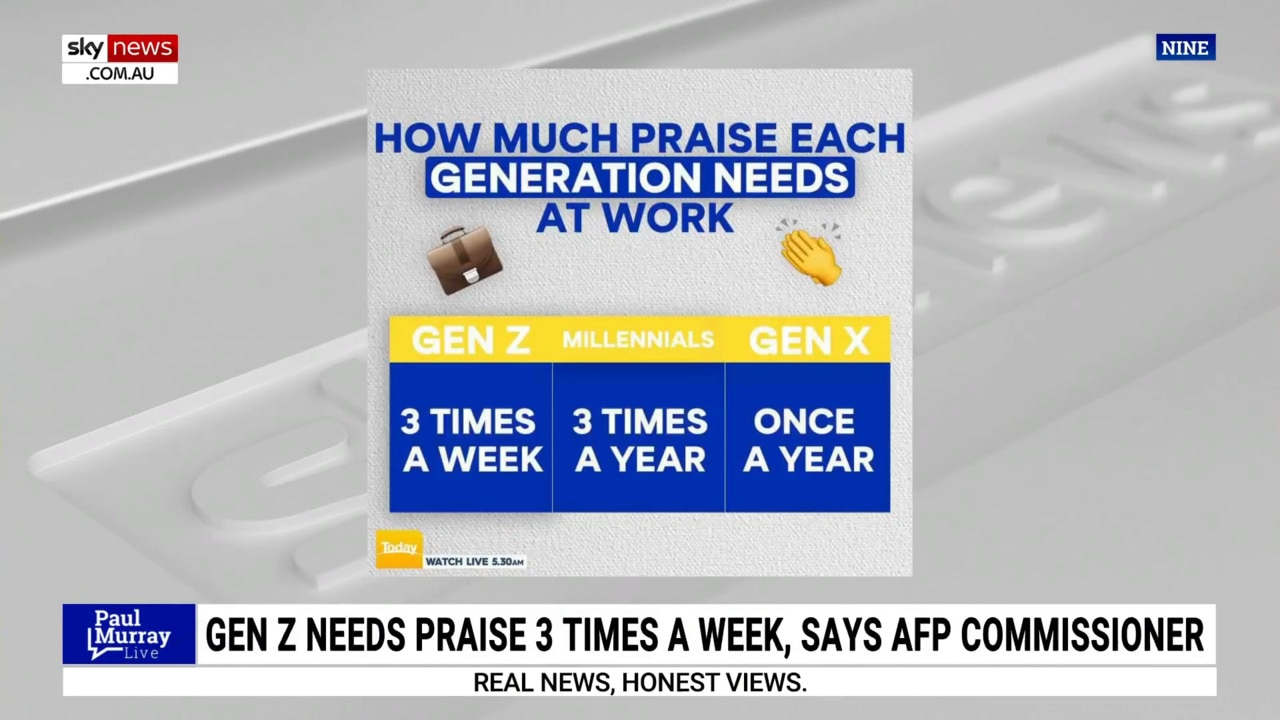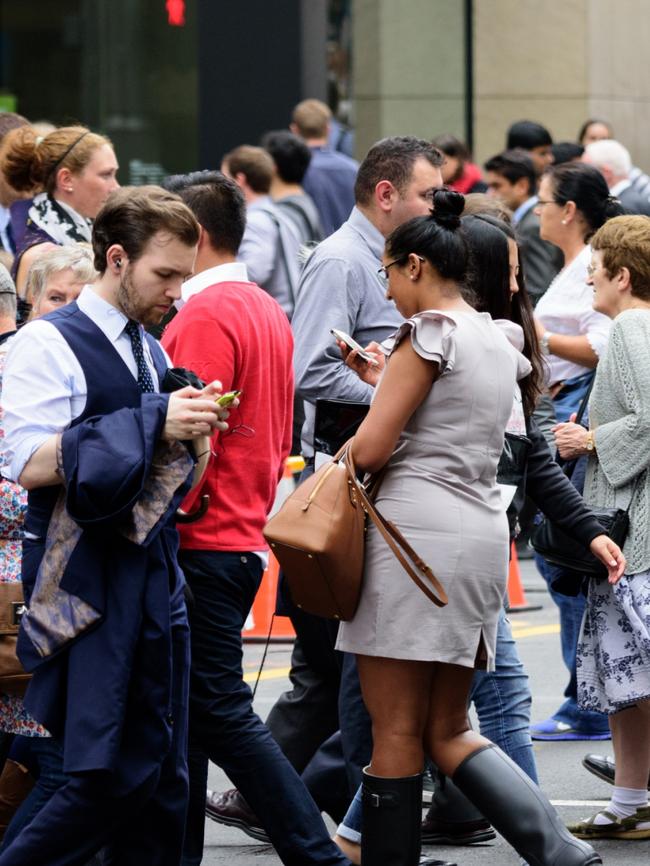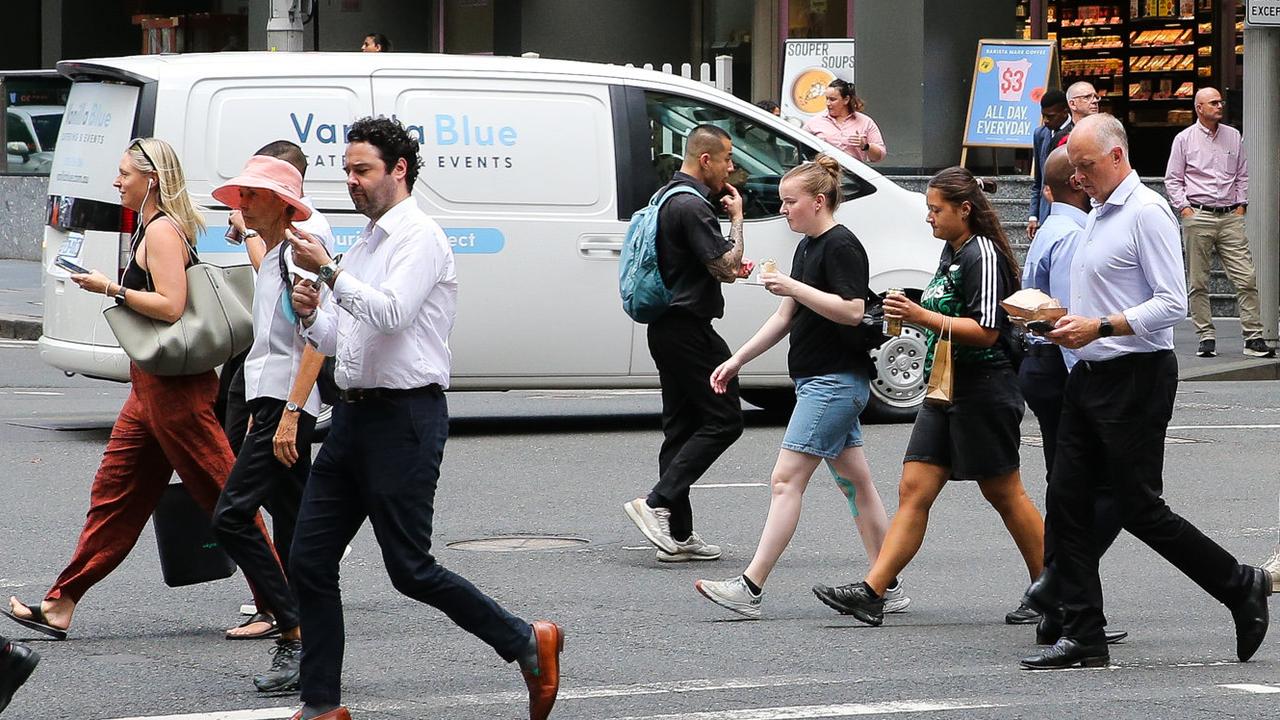Why young Aussies are working harder than Boomers
Gen Z and Millennials might be lazier at work but there is a surprising reason they are doing it tougher than Boomers.

At Work
Don't miss out on the headlines from At Work. Followed categories will be added to My News.
Generation Z and Millennials are the first generations to start their careers being constantly contactable – and it could be their undoing.
Nothing splits the nation more fiercely than the debate over which generation works harder. A recent survey by immigrant to Australia found that young Aussies are lazier than their parents, with one third of respondents between 18 and 30 admitting they’d adopted a more relaxed perspective towards their jobs due to the dipping unemployment rate.
However, recruitment specialist Nina Mapson Bone said the younger generations were more vulnerable to the demands of the modern 24/7 work culture because they have less power and status.
“The reason it is harder for the younger generation is that it’s typically the older generation who are in leadership positions. They have less control over the boundaries around being contactable and are less likely to push back against their leaders if these boundaries haven’t been agreed upon or are unclear,” she told news.com.au.
There’s no arguing that Boomers are now part of the constant contact culture as well, but that wasn’t the case at the start of their careers – and for many, by the time it was, they were in positions of power anyway.

Thanks to technology, Generation Z and Millennials can browse through their work emails 24/7 or be contacted by their boss any time of the day.
While mobile phones have had a positive influence on how we communicate, they have also made it near impossible for the younger generation to disconnect when they need, meaning they’re getting worn out faster than a pair of Dr Marten boots.
*Brittany shared that while she enjoys her work, it has become “impossible to disconnect”. She blames the fact that work correspondence often now happens on social apps.
For instance, you might be on WhatsApp so you can message your best mate in France and then be confronted with a work message.
For *Kate, she struggles with the fact that being constantly on call means there’s no clear start or end time to her work day.
“Almost every day I work back … even when I’m physically not in the office,” she said.
Meanwhile *Jess is amazed at how she’s expected to be available 24/7.
“People email me and message me at all hours and still expect a response,” she vented.
The result?
She finds the constant accessibility debilitating. “It is a massive drain! I can’t even email back in four days. I’m too busy and overwhelmed,” she admitted.
For *Ron, he feels as if he never gets a break from work.
“I’m physically in the office only a set amount of hours per week, but mentally I feel like I’m always on the clock.”
Even traditional jobs like teaching aren’t ending in the classroom – instead they spill over into people’s home lives.
“It never stops. Kids and parents email at all hours, and I mean all hours, and you have access to reports at home – so most of my paperwork is done there,” *Jade shared.
*Rachel is just tired because she feels like work never ends.
“Sometimes I will end up working until 11pm, and I get phone calls after hours and before.”


For some young workers, this constant sense of being on call has become crippling.
“It is extremely draining. I started to get sick because of it,” *Amy admitted.
It’s much harder to create or maintain boundaries because everyone is expected to have their phone accessible at all times.
“Last week, my boss messaged me on a mental health day to question me about something that isn’t my job,” *Ann raged.
*Veronica pointed out that flexibility comes at a price.
“It is flexible, but then there’s an expectation that you should be doing more or you should always be contactable.”
*Rose explained that she just wants to feel like she has her own time again.
“It is overwhelming and draining. Constant emails and messages are all happening on my personal time.”
Despite complaints from the young, Bone said that being constantly contactable isn’t all bad.
“The biggest benefit is that with a good workplace culture, you have the flexibility to adjust your schedule to suit your personality and work/life needs.
“However, the downsides come when you can’t, or your workplace doesn’t allow you to, set boundaries – and these include increased stress and anxiety, sleep issues and burnout,” she said.
So how should employers help young people navigate our constant online culture?
“Good leaders should be vocal in what the expectation is, and the younger generation should ask what is expected of them rather than assume,” Bone advised.
*Names have been changed to protect people’s privacy.
Originally published as Why young Aussies are working harder than Boomers





